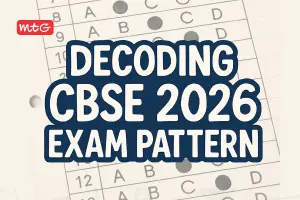
Chemistry labs are a fantastic way to bridge the gap between theory and practice. They allow you to witness reactions first hand, develop valuable skills, and solidify your understanding of complex concepts. But a crucial part of any successful lab experience is maintaining a well-organized and informative chemistry record.
This blog post serves as your guide to crafting exceptional chemistry records, leaving a lasting impression on your instructors, and boosting your learning.
Important Sections in a Record
Every chemistry record should follow a specific structure, ensuring all necessary information is documented. Here’s a breakdown of the key sections:
- Title and Date: Begin with a clear and concise title reflecting the experiment’s purpose. Include the date the experiment was performed.
- Objective: Briefly outline the experiment’s goals. What are you hoping to achieve or learn from this lab?
- Materials and Apparatus: List all the chemicals, equipment, and instruments used in the experiment. Ensure proper scientific notation for chemicals and specify quantities.
- Theory/Background: Briefly explain the underlying chemical principles or theories relevant to the experiment. This section provides context and helps you connect observations to theoretical concepts.
The Heart of the Lab: Procedure and Observations
- Procedure: This is the step-by-step account of how you conducted the experiment. Be meticulous! Use clear and concise language, mentioning quantities, mixing techniques, heating/cooling procedures, and any safety precautions taken.
- Observations: This section is where your detective skills come into play. Record all your observations throughout the experiment. Note color changes, gas evolution, precipitate formation, temperature fluctuations, and any unexpected occurrences.
Discussion and Conclusion
- Discussion: Analyze your observations. How do they relate to the experiment’s objective and the underlying theory? Did the results align with your expectations? Discuss any discrepancies or unexpected observations.
- Conclusion: Briefly summarize the key takeaways from the experiment. Did you achieve the intended objective?
Chemistry Practical Record Tips
- Be Detailed: Don’t just note “color change.” Describe the initial and final colors precisely.
- Use Drawings: Include labeled sketches of setups or observations. This can be particularly helpful when recording crystal formations or apparatus arrangements.
- Data Tables: Organize quantitative data (temperatures, volumes, etc.) in neat and well-labeled tables for easy reference and analysis.
Check out the Chemistry Lab Manual from MTG, designed to assist CBSE students in preparing for their Chemistry practical exam. It covers various topics, allowing students to enhance their practical skills and confidently approach the exam. It includes lab experiments, investigatory projects, viva-voce questions, and NCERT lab manual questions to familiarize students with the format and types of questions asked in the exam.
 |
 |
Bonus Tips for Chemistry Record
- Maintain a clean and organized record.
- Use proper grammar and scientific terminology.
- Record data and observations promptly.
- Include calculations, if required.
- Review your record after the experiment for clarity and completeness.
By following these guidelines and incorporating the bonus tips, you’ll be well on your way to crafting exceptional chemistry records that not only document your lab work but also showcase your understanding and critical thinking skills. Remember, a well-kept record is a valuable learning tool you can refer back to throughout your chemistry journey.



























